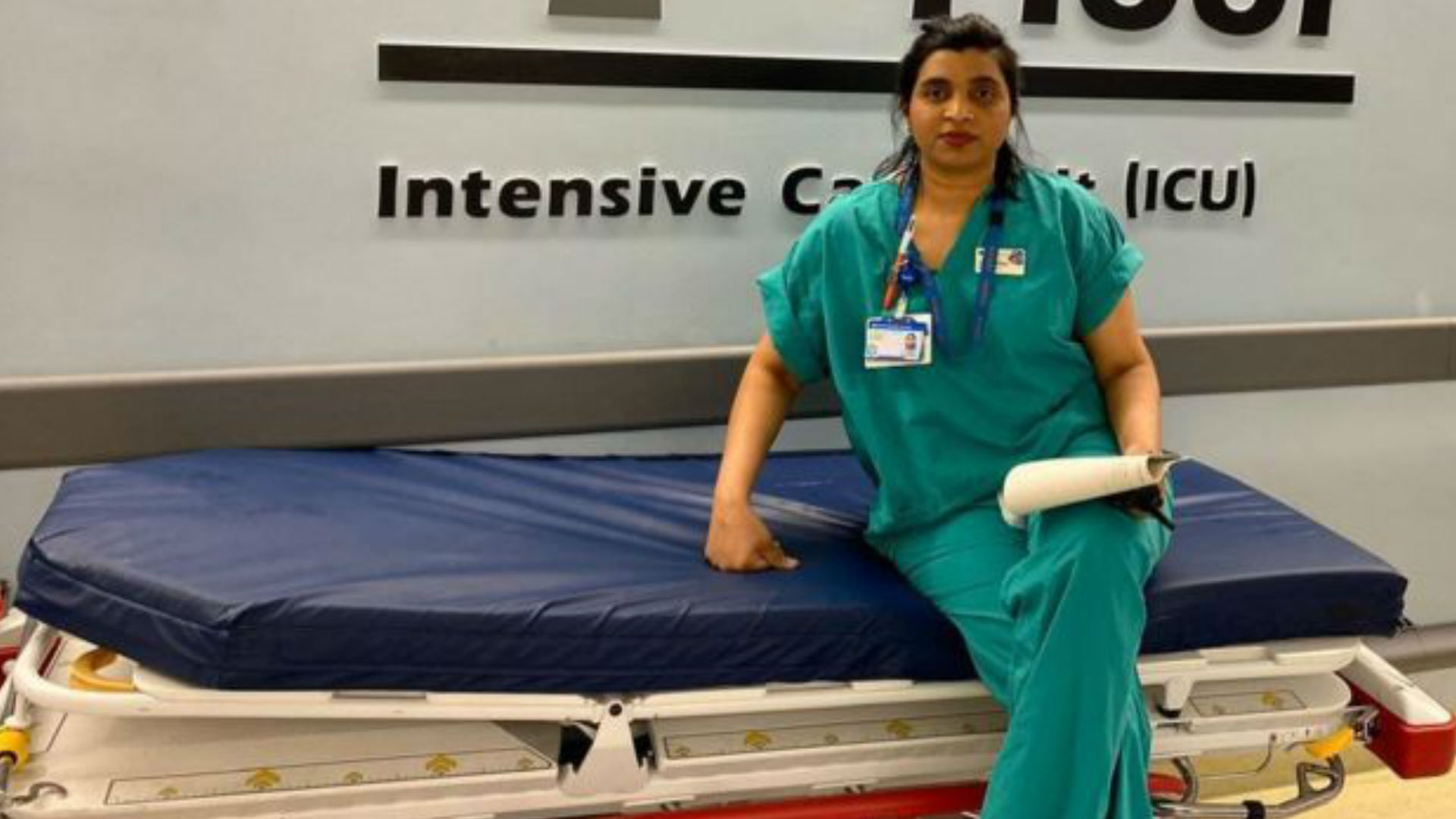Juanita Nittla has spent 16 years of her life working as a nurse specialized in intensive care and now she shares how she faces the difficult decision to interrupt or not the treatment of people with coronavirus.
And it is that having access to an artificial respirator can make the difference between life and death for some seriously COVID-19 patients, since these devices help carry oxygen to their lungs and expel carbon dioxide when they cannot do it for them. themselves.
"Disconnecting the respirator is part of my job. It is very traumatic and emotionally painful. Sometimes I feel that I am somewhat responsible for the death of that person," Juanita admitted to the BBC.
The last call
The 42-year-old woman, who is the head of nurses in the Intensive Care Unit (ICU) at Royal Free University Hospital in London, UK, said that one morning, in the second week of April, doctors told her that she would have to end the treatment of a person infected with the virus.
The affected was a nurse of approximately 50 years, from a community health center, and Nittla had to talk to her daughter about the process that they were going to follow.
"I assured her that her mother was not suffering and that she seemed calm. I also asked her about her last wishes and her mother's religious needs," said Nittla.
In her area, the beds are next to each other, so the woman was surrounded by other unconscious people.
Juanita prepared to close the curtains, turned off all the alarms and, along with the other medical team, took a pause.
"The nurses stopped talking. The dignity and calm of our patients is our priority," he said.
Then he placed the phone next to the patient's ear and asked his daughter to speak to him.
"For me, it was just a call. But for the family it was something very important. They wanted to make a video call, but unfortunately cell phones are not allowed inside the ICU," he said.
Following the requests of the patient's family, Juanita played a specific music video from a computer. Then he turned off the fan.
"I sat next to him on the bed holding his hand until he died," he said.
Her patient died within five minutes of turning off the ventilator. "I saw the blinking lights on the monitor and the heart rate reach zero; the flat line appeared on the screen," he explained.
Then she disconnected the tubes that delivered the sedation medications. While all this was going on, the woman's daughter had not noticed the disconnection process and was still talking to her mother and praying through her mobile, so Nittla picked up the phone and informed her that it was all over.
However, Juanita assures that her work of caring for a patient does not end when the patient dies.
"With the help of a colleague, I cleaned her on the bed, wrapped her in a white shroud and deposited her inside a body bag. I put the sign of the cross on her forehead before closing the bag," he described.
The restrictions
Likewise, he explained that, in the days prior to the dangerous virus, the relatives had to have a face-to-face conversation with the doctors about the decision to stop the treatment of their family member and even those who were closest to the patient were allowed to access the intensive care unit before disconnecting the patients.
But currently, this is not allowed in most of the world. "It is sad to see someone die alone," he admitted, as he has seen patients struggle and gasp to try to breathe, and that, according to his statements, has been very difficult to witness.
A latent fear
As a chief nurse, you sometimes have to suppress your own fears.
"I have nightmares. I'm having trouble sleeping. I'm worried about catching it, we talk about it among colleagues and we're all very scared [...] People tell me that I shouldn't be working, but this is a pandemic and it's my job. When the shift ends, I think about patients who have died, but I try to disconnect when I leave the hospital, "he said.
Meanwhile, the ICU of the hospital where Juanita works has expanded her beds from 34 to 60, but they are all occupied, and they have 175 nurses.
"It is now one nurse for every three. If the situation worsens, then it will be one nurse for every six patients," he said.
But because some nurses on her team suffered from coronavirus symptoms and are now isolated, the hospital is already training other nurses to support the critical care ward.
"Before the start of the shift, we grab our hands and say, 'Get safe.' We keep an eye on each other and make sure everyone wears gloves, masks and protective gear properly," he concluded.
See also:
"One day she came to work and they had no mask for her": widower of a nurse who contracted COVID-19
For treating coronavirus patients doctor loses custody of her daughter
"I had to say goodbye to my dad after they said he had no chance of survival"
Related video: Dominican family who died of coronavirus denounces medical malpractice in New York

